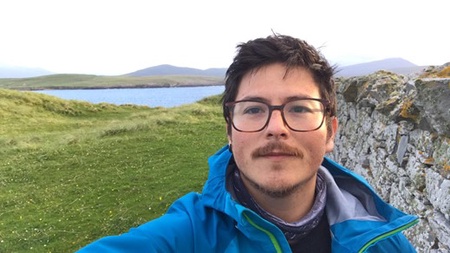David Flood describes his research project on sustainability transitions in tourism in the Margaret River region (WA, Australia) and what brought him to Aberdeen University.
David Flood
What is your background? This is a challenging question as I did my bachelor in Forest Engineering but gradually transitioned to Human Geography. The turning point, I would say, was doing an MSc in Environmental Partnership Management at the University of Aberdeen. During the master programme I learnt plenty of new concepts and methodologies to critically analyse the evolution of the economic landscape, the governance issues surrounding sustainable development, and the complexity of sustainability transitions in different sectors and industries. In fact, the MSc was key to obtain a PhD scholarship where I am using sustainability transitions and evolutionary economic geography perspectives to analyse transitions in tourism in a beautiful Australian destination.
What is your research about? My research titled 'Sustainability transitions in tourism in the Margaret River region (WA, Australia)' is a collaborative project between the University of Aberdeen and Curtin University (WA). The research aims to understand the evolutionary forces hindering and promoting the transition of the tourism sector in the destination towards more sustainable scenarios. As such, I carried out several interviews with tourism stakeholders at the destination, the WA state, and the Australian Federal government together with a large documentary analysis. Despite being affected by the COVID-19 pandemic, the research is about to end and aims to shortening the wide theoretical gap between tourism geographies and sustainability transitions research.
What was the best experience during your PhD? I would say the entire journey. My research started in 2019 in Aberdeen and was expected to continue in Margaret River in 2020; however, the impact of the pandemic changed all the original plans. So, my supervisors (Dr Piotr Niewiadomski and Dr Tod Jones) and I had to constantly adapt to the changing circumstances. All in all, the PhD journey has allowed to me to publish papers, attend and co-chair conferences, and have an amazing experience teaching at the undergrad level and at the MSc in Sustainability Transitions. All of that is unvaluable.


